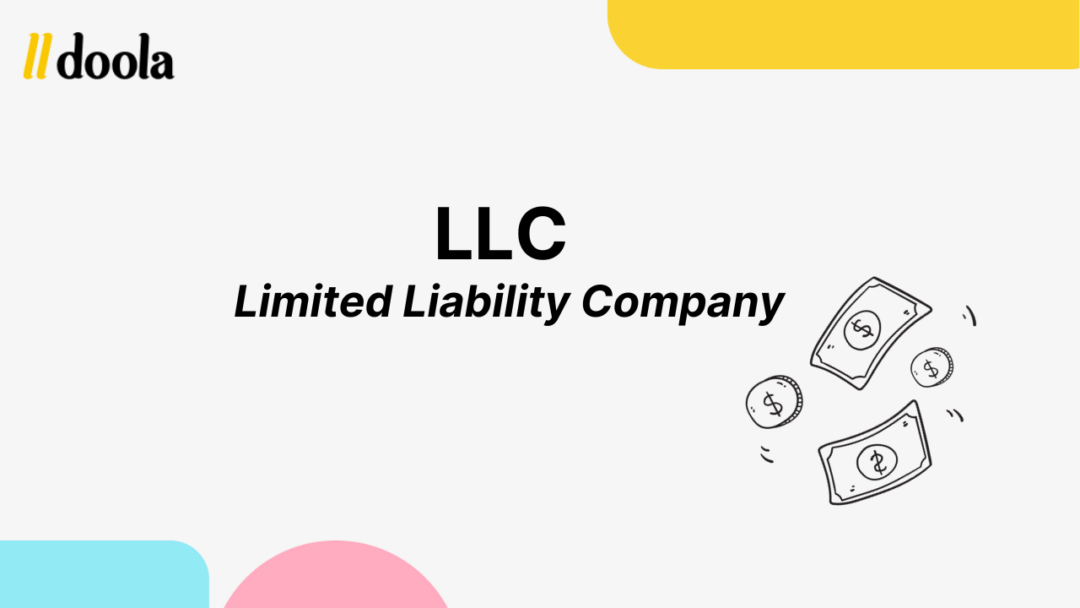Language:
What Type of Business Entity Should You Form?
There are many different types of entities to choose from when starting a business:
All of these different types of companies are confusing and it can be tough to know which type of entity is right for your specific business.
Below, we’re going break down what each of these entity types is and help you understand which one is best for you.
Sole proprietorship
A sole proprietorship is the default business classification you will get if you start a business. What that means is you are a sole individual who is working on a business.
The important thing to keep in mind here is that this classification is automatically assigned when you start a business, without forming an actual type of entity.
One of the biggest downsides of being a sole proprietorship is you do not have liability protection, which leads us to the next type of entity – LLC (limited liability company).
LLC
The first LLC was actually invented and created in Wyoming, and since then LLCs have provided a way for businesses around the world to get limited liability protection (which is what LLC stands for).
The biggest benefit of forming an LLC
When anyone starts a business, no one wants to think of the downside risk. However, downside risk could come into many forms, and the biggest type of downside risk typically comes in the case of a lawsuit. And if you do not have liability protection, your personal assets are at risk of being seized.
This is dangerous because that means you could put in lots of time and money into the business, and if something goes wrong, your personal assets could be taken.
However, if you have an LLC, there is a veil of protection between your personal and business assets, meaning only your business assets would be at risk. This is the biggest benefit of forming an LLC.
LLCs are also great because they offer tax flexibility and limited upkeep. They are easier to maintain than other types of entity structures, and they give you the ability to get a tax identification number from the IRS and open up a US business bank account.
Start, manage, and grow your LLC.
S-Corp
You will first have to form an LLC and then have a tax election done to classify your LLC to be taxed as an S-Corp. But, you have to be a US resident with a US social security number in order to do this election.
An S-Corp typically only makes sense in terms of the benefits you’ll receive if your business is generating more than $70k-$80k of revenue and you are paying yourself a salary equal to or above that range.
The reason for this is at that threshold the tax benefits you can get come into play, and more than make up for the costs of maintaining the S-Corp as a business.
C-Corp
This is the type of entity that is required by US investors if you are looking to raise US venture capital. The C-Corp offers a dual tax structure where there is a corporate tax plus a personal tax paid on revenue or profit after the corporate tax is applied.
LLC vs. C-Corp
To make this simple, if you are looking to raise US venture capital, a Delaware C-Corp is required by investors. If you are not raising US venture capital, an LLC is much easier to maintain and has tax flexibility, meaning you can elect to have it taxed as different types of entities and it gives you limited liability protection.
This is not only crucial in terms of protecting your personal assets in the case of a lawsuit, but an an LLC offers that legitimacy and social proof which can take you and your business to the next level.
You are no longer just a freelancer, you are actually a business with a business bank account and that can increase the odds of your business succeeding.
Changing an LLC to a C-Corp: Is it possible?
So what about if you’re not raising venture capital right now, or down the line you might want a C-Corp? The good news is you can form an LLC and in the future you can convert it to a C-Corp.
You can also dissolve your LLC, which is the process of compliantly shutting your company down, and you can then start a fresh new Delaware C-Corp.
Unless you are 100% sure that you will be raising venture capital now, or you will be in the future, an LLC is typically the best option.
Overview
Sole proprietorship – The default classification you will have when you start a business, but the biggest risk of being a sole proprietorship is you do not have limited liability protection and the peace of mind from having an LLC.
LLC – Offers limited liability protection, tax flexibility, limited upkeep. You can dissolve it and change it to a C-Corp later on if necessary.
S-Corp – You don’t actually form an S-Corp, you form an LLC and then you can have a tax election done to classify your LLC to be taxed as an S-Corp. Makes sense if your business is generating over $70-$80k in revenue and you live in the USA.
C-Corp – A type of entity required by US investors if you are looking to raise US venture capital. The C-Corp offers a dual tax structure where there is a corporate tax plus a personal tax paid on revenue or profit after the corporate tax is applied.
Get Started With doola
Not sure how to proceed with forming a US company? We’ve got you!
If you have any lingering questions or need more guidance, feel free to reach out – we’re committed to helping you form your company and stay compliant in the easiest way possible, so you can focus on building your business.
Check out our FAQ page and the full list of our Business Solutions to see which one is right for you!








